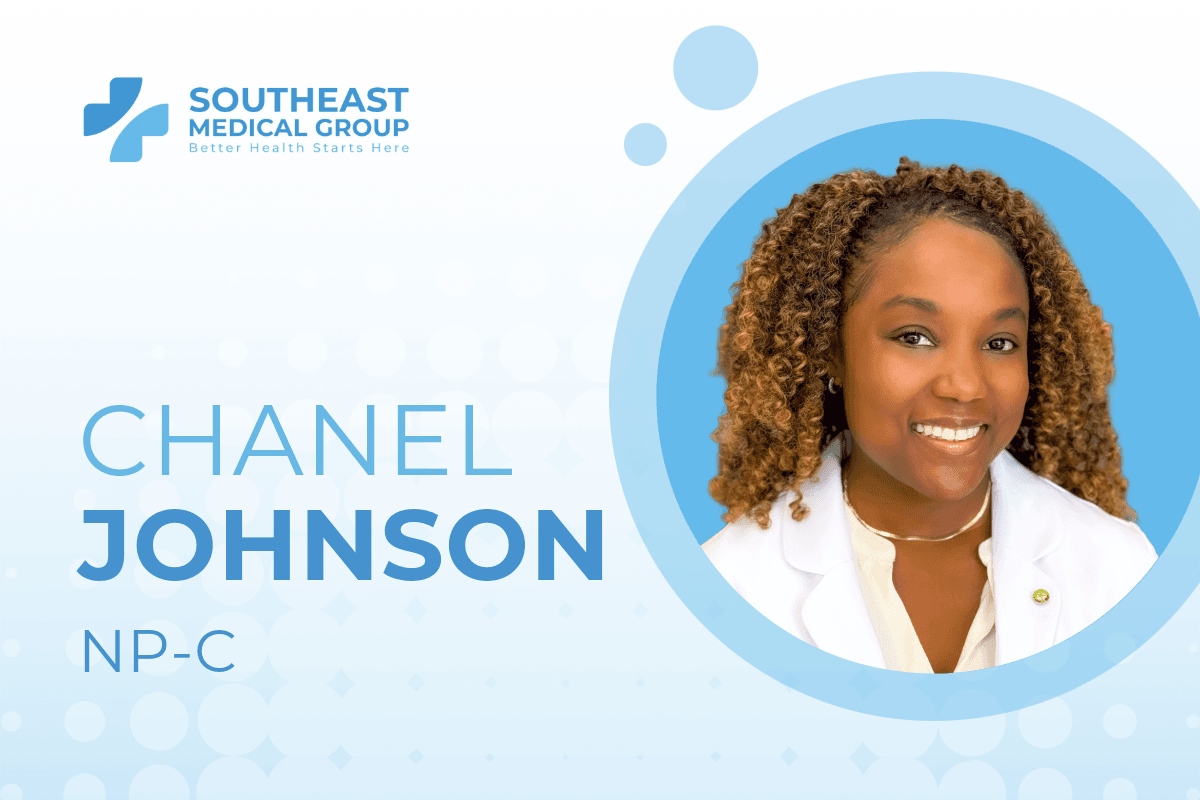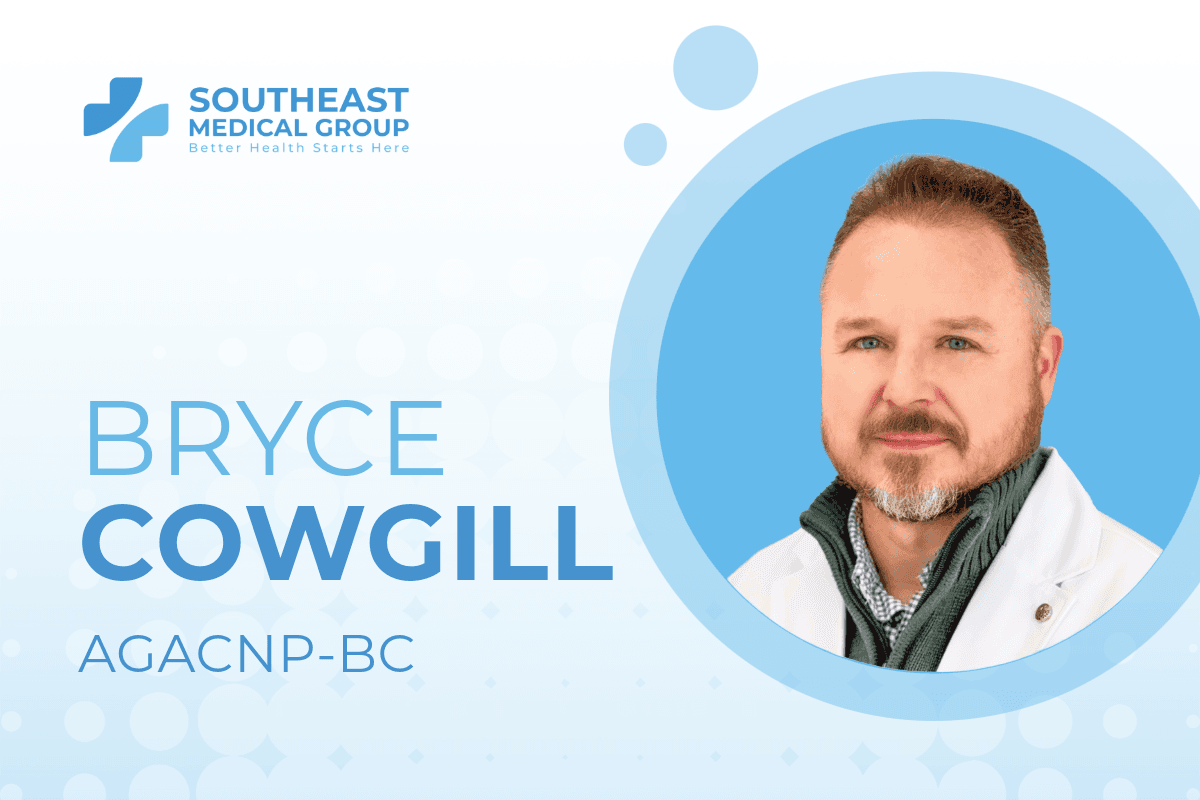Primary care is more than just care for the body. It’s care for the mind, too. At Southeast Medical Group, we're all about supporting your total health. We get that navigating mental health concerns can be tough, but don't worry – we've got your back!
As your trusted primary care group, we're here to offer guidance, understanding, and top-quality care tailored just for you. So, let's dive in and tackle ten of the most common questions about mental health together. Grab a cup of tea, get cozy, and let's chat about how we can help you feel your best.
1. What are the signs and symptoms of common mental health conditions?
Common mental health conditions such as depression, anxiety, and bipolar disorder can manifest in various ways.
Symptoms of depression may include:
- Persistent feelings of sadness
- Loss of interest in activities
- Changes in appetite or sleep patterns
- Unexplained Fatigue
- Difficulty concentrating on daily tasks
- Inability to cope
- Anxiety disorders may involve:
- Excessive worry
- Restlessness and/or irritability
- Muscle tension
- Panic attacks
Bipolar disorder may involve:
- Mood swings between periods of depression and mania, characterized by elevated mood
- Increased energy
- Risky behavior
It's important to recognize these symptoms and seek support, but of course, there are many other mental health conditions that may be flying under the radar. If any recurring symptoms are bothering you, consider booking an appointment with your primary care provider.
2. How do I know if I need therapy or counseling?
If you're experiencing distressing symptoms that interfere with your daily life, relationships, work, or school, therapy or counseling may be beneficial.
Visit your primary care provider and describe your symptoms and feelings. Our providers are equipped to diagnose and treat many mental health conditions and will refer you to the highest-quality mental health professional available if your condition is outside of our scope of care.
Common reasons to seek therapy include struggling with stress, anxiety, depression, grief, trauma, relationship issues, or life transitions. Therapy provides a safe and supportive space to explore your thoughts, feelings, and experiences, develop coping skills, and work towards personal growth and healing.
3. What should I do if I'm experiencing a mental health crisis?
If you are experiencing a mental health crisis, seek help right away.
If the need to seek help is immediate, don’t wait. Call a crisis hotline to provide support and guidance right away. If you’re having thoughts of suicide, call 988 for the National Suicide and Crisis Lifeline.
As soon as possible, book an appointment with your primary care provider to explain your symptoms and feelings. Our providers are equipped to diagnose mental health conditions in the same-day and will promptly provide necessary treatment or refer you to (the highest) quality mental health professionals in a timely manner.
4. How can I support a loved one who is struggling with their mental health?
Supporting a loved one with mental health challenges involves listening nonjudgmentally, offering empathy and understanding, and encouraging them to seek professional help to diagnose and treat their condition.
Ensure they are seen by their primary care provider or mental health professional regularly.
Educate yourself about their condition, and practice patience and compassion.
All of these make a significant difference in their journey towards recovery.
5. What are some self-care strategies for managing stress and anxiety?
Self-care is essential for maintaining mental health and well-being. Strategies for managing stress and anxiety can include:
- Regular exercise
- Relaxation techniques such as deep breathing or meditation
- Maintaining a healthy lifestyle with nutritious food and adequate sleep
- Setting boundaries and removing negative triggers whenever possible
- Consistently engaging in hobbies or activities you enjoy
- Seeking social support from friends and family whenever possible
While self-care is a key part of your wellness effort, regular visits to your primary care provider and/or your mental health specialist are essential to keeping tabs on any stress and anxiety. We keep detailed record of your symptoms and adjust treatment to keep you feeling your best.
6. What are some online resources for mental health?
There are many online resources and support groups available for individuals seeking mental health support.
Websites such as the National Alliance on Mental Illness (NAMI), the Substance Abuse and Mental Health Services Administration (SAMHSA), and Psychology Today offer valuable information. While using these resources can be a great start, consider visiting your primary care provider to develop a personalized care plan that fits your specific needs.
7. How do I find a therapist or mental health professional that's right for me?
Finding the right therapist or mental health professional involves considering factors such as their qualifications, expertise, therapeutic approach, and compatibility with your personality and needs.
It's most helpful to work with your primary care provider to find the right specialist for your specific needs.
8. What are the differences between psychiatrists, psychologists, therapists, and counselors?
Psychiatrists are medical doctors who specialize in diagnosing and treating mental health conditions. They can prescribe medication and provide therapy.
Psychologists typically have doctoral degrees in psychology and specialize in assessment and therapy.
Therapists and counselors may have various degrees and specialize in specific types of therapy, such as cognitive-behavioral therapy (CBT), dialectical behavior therapy (DBT), or interpersonal therapy.
Our primary care providers are qualified to diagnose and treat many mental health conditions but may refer you to a specialist if needed.
9. How can I improve my sleep quality and manage insomnia?
Improving sleep quality and managing insomnia involves establishing healthy sleep habits and addressing underlying factors that may contribute to sleep disturbances.
Strategies may include:
- Maintaining a consistent sleep schedule
- Creating a relaxing bedtime routine that includes turning off screens an hour before bedtime or setting a night mode on your device that reduces blue light
- Avoiding caffeine too near your bedtime (the FDA states that half-life for is between 4 to 6 hours, meaning it typically takes 8 to 12 hours for caffeine to completely leave your system)
- Seeking treatment for underlying conditions such as anxiety or sleep disorders
10. What role does diet and nutrition play in mental health?
Diet and nutrition play a significant role in mental health and can impact mood, energy levels, and overall well-being.
Try to consume a balanced diet rich in:
- Fruits and vegetables
- Whole grains
- Lean proteins
- Unsaturated fats
A balanced diet provides essential nutrients that support brain function and mood regulation. Be sure to limit saturated fats, processed foods, and sugar, and stay hydrated.
For a personalized diet that is convenient for you, be sure to consult with your primary care provider.
Mental health is complex, and there are many other topics that should be discussed in addition to these FAQs. For your specific needs, consider booking a visit with your primary care provider



